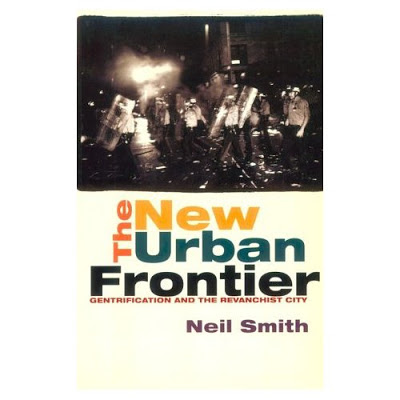Agenda militant
Ailleurs sur le Web
![S’abonner au flux RSS [RSS]](images/rss.jpg)
- Contre les procédures-bâillon envers les délégués syndicaux : solidarité avec Siham Touazi (08/05)
- Clémence Guetté ce jeudi matin sur France Inter (08/05)
- Artus : Pourquoi nous ne croyons pas à un recul de l’inflation dans la zone euro (08/05)
- Taxer les loyers imputés : vers l’équité fiscale ? (08/05)
- EN FRANCE, LA MISE À MORT DE LA LIBERTÉ D’EXPRESSION (08/05)
- Marx et la question des machines (07/05)
- Podcast : L’hégémonie et la révolution, Gramsci penseur du politique (07/05)
- Gaza : du déni à l’occultation. Retour sur un entretien du Monde avec Eva Illouz et Derek Penslar (07/05)
- Etre juif et de gauche dans la France d’aujourd’hui (07/05)
- NPA - L’Anticapitaliste : votons pour la liste de l’Union populaire conduite par Manon Aubry (07/05)
- “Le moindre mal, c’est toujours le mal” : Mélenchon répond à “Philosophie magazine” sur Arendt (06/05)
- Des droits de l’homme aux prud’hommes - La chanson de GieDré (06/05)
- Dérive antisémite sur les campus, ou malaise sioniste face à la solidarité avec la Palestine ? (05/05)
- Rima Hassan face au chien de garde Duhamel sur BFM (05/05)
- Djamil Le Shlag démissionne en direct de France Inter (05/05)
- Claude Serfati : "L’impérialisme, c’est l’interaction du Capital et de l’Etat !" (05/05)
- Assemblée du Parti Ouvrier Indépendant - 5 mai 2024 (05/05)
- PODCAST: Xi Jinping, le prince rouge (05/05)
- De Science-Po à Columbia, le mouvement étudiant pro-palestinien résiste aux matraques et aux pressions (05/05)
- "Tant qu’il n’y aura pas de sanctions, ni de cessation de livraison d’armes à Israël, les responsables israéliens continueront" (05/05)
- Raphaël Glucksmann expulsé du 1er mai : et la violence du PS on en parle ? (05/05)
- Procès médiatique en antisémitisme de LFI (05/05)
- Attention danger populisme (05/05)
- Alain Minc et Jacques Attali, l’éternel retour des duettistes médiatiques (05/05)
- Soutien Gaza: Un point sur la mobilisation étudiante et lycéenne (04/05)
Liens
- Notre page FaceBook
- Site du NPA
- Démosphère (Paris, IdF)
- Site anti-k.org
- Le blog de Jean-marc B
- CGT Goodyear
- Démocratie Révolutionnaire
- Fraction l'Étincelle
- Anticapitalisme & Révolution
- Révolution Permanente (courant CCR)
- Alternative Communiste Révolutionnaire (site gelé)
- Ex-Groupe CRI
- Librairie «la Brèche»
- Secteur jeune du NPA
- Marxiste.org
- Wiki Rouge, pour la formation communiste révolutionnaire
Neil Smith | La Cité Revancharde
Ces articles de la rubrique « Ailleurs sur le web » sont publiés à titre d'information et n'engagent pas la Tendance CLAIRE.
http://laboratoireurbanismeinsurrectionnel.blogspot.fr/2017/08/neil-smith-la-cite-revancharde.html
The New Urban Frontier. Gentrification and the revanchist city
Londres, Routledge, 1996.
NEIL SMITH (1954-2012)
La Cité Revancharde
Peu connu du grand public français, le géographe « radical » anglais Neil Smith, élève de David Harvey, a légué à la postérité nombre d’ouvrages majeurs concernant la gentrification, dont notamment The New Urban Frontier. Gentrification and the revanchist city. Aucun n’a été à ce jour traduit en français. Ce brillant essai est disponible en intégralité en anglais au format PDF :
= sur le site internet rohcavamaintenant.free.fr
= dans notre bibliothèque
Extraits choisis :
Revanche in French means revenge, and the revanchists comprised a political movement that formed in France in the last three decades of the nineteenth century. Angered by the increased liberalism of the Second Republic, the ignominious defeat to Bismarck, and the last straw—the Paris Commune (1870–1871), in which the Paris working class vanquished the defeated government of Napoleon III and held the city for months—the revanchists organized a movement of revenge and reaction against both the working class and the discredited royalty. Organized around Paul Déroulède and the Ligue des Patriotes, this movement was as militarist as it was nationalist, but also made a wide appeal to “traditional values.” “The True France, for Déroulède—the France of good honest men who believed in simple virtues of honor, family, the army, and the [new Third] Republic …would surely win out” (Rutkoff 1981). It was a right-wing movement built on populist nationalism and devoted to a vengeful and reactionary retaking of the country.
The parallels with fin-de-siècle France should not be overdrawn, but nor should they be ignored. In the current fin de siècle—indeed the fin de millénaire—there is a broad, vengeful right-wing reaction against both the “liberalism” of the 1960s and 1970s and the predations of capital. This takes many forms, including fundamentalist religion and a Heideggerian romance of place, precisely at the time when “traditional” identities of place are most threatened by global capital. In the US especially, the public culture and official politics are increasingly an expression of a new creeping revanchism. The Gingrich Congress elected in 1994, the rise of white supremacist militias, the vicious anti-corporatist right-wing populism of Patrick Buchanan, the intense emotion around anti-immigrant campaigns and the call for revenge against beneficiaries of affirmative action all point in this direction. In many ways the vengefulness of the fin-de-siècle revanchist city has overtaken gentrification as a script for the urban future.
[...]
The revanchists in late nineteenth-century France initiated a revengeful and reactionary campaign against the French people, and it provides the most fitting historical pretext for the current American urbanism. This revanchist antiurbanism represents a reaction against the supposed “theft” of the city, a desperate defense of a challenged phalanx of privileges, cloaked in the populist langage of civic morality, family values and neighborhood security. More than anything the revanchist city expresses a race/class/gender terror felt by middle- and ruling-class whites who are suddenly stuck in place by a ravaged property market, the threat and reality of unemployment, the decimation of social services, and the emergence of minority and immigrant groups, as well as women, as powerful urban actors. It portends a vicious reaction against minorities, the working class, homeless people, the unemployed, women, gays and lesbians, immigrants.





